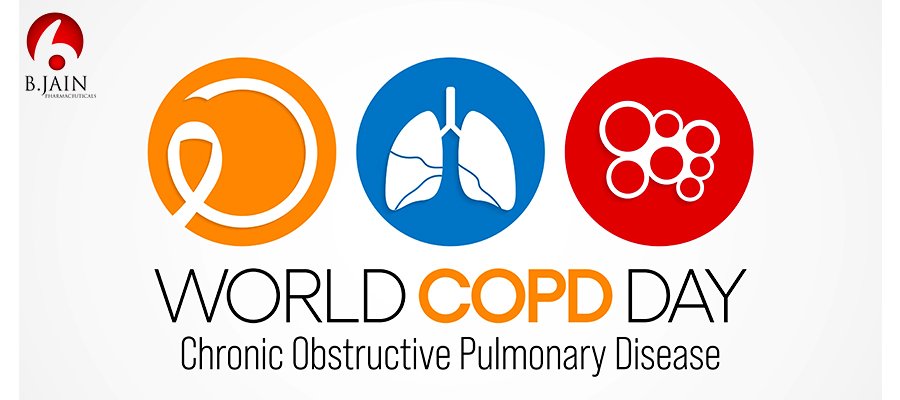Introduction
For the last 20 years, World COPD Day has been commemorated on the third Thursday in November. It represents a worldwide medical event to increase the global understanding of Chronic Obstructive Pulmonary Disease (COPD). Various organizations have organized events across over fifty nations, becoming one of the globe’s most prominent COPD learning and awareness days.
What is the theme of World COPD Day 2024?
In 2024, the subject of discussion for World COPD Day is “Know Your Lung Function.” World COPD Day is observed on the 20th of November. This year’s topic emphasizes the significance of evaluating lung function, generally described as spirometry. Spirometry is an important technique for identifying COPD, but it may also be done to assess lung conditions throughout one’s life.
What is COPD?
Chronic obstructive pulmonary disease (COPD) is a persistent pulmonary inflammatory disorder that creates a blockage in ventilation from the lungs. Indications include breathlessness, coughing up mucus (sputum), and wheezing. It is often caused by prolonged exposure to irritating chemicals or particulate particles, most commonly due to smoking. Patients with COPD are more likely to be diagnosed with coronary artery disease, lung cancer, and a range of other illnesses.
Emphysema and chronic bronchitis are two of the most prevalent diseases that cause COPD. These two diseases are frequently present simultaneously and can vary in severity among COPD patients.
Chronic bronchitis is defined as a swelling of the bronchial tube linings that passes air from the alveoli to the outer environment. It is distinguished by daily coughing and mucus (sputum) secretion.
Emphysema is a disease of the alveoli present at the ends of the lungs and the tiniest air channels (bronchioles) are damaged as a result of the harmful effects of smoking and various noxious chemicals and particulates.
COPD is a persistent condition that worsens with time, although it is curable. With effective therapy, most COPD patients can attain good control over their symptoms and a high quality of life, as well as a lower chance of developing other related disorders.
What are the causes of COPD?
Smoking exposure is responsible for up to 90% of COPD occurrences. Other factors are:
- Lack of Alpha-1 antitrypsin is a genetic condition.
- Secondhand smoke inhalation.
- Air pollution.
- Occupational dust and gases.
What are the symptoms of COPD?
The signs and symptoms of COPD seldom manifest until extensive lung destruction has taken place, and they frequently deteriorate with time, especially if smoking habits persist.
The manifestations of COPD might consist of:
- Breathlessness, especially after strenuous activity.
- Wheezing
- Chest tightness.
- A persistent cough could yield mucus (sputum) that might be transparent white, yellow, or green.
- Recurrent respiratory illnesses.
- Lethargy.
- Unintentional weight loss (latter phases).
- Edema in the ankles, feet, or legs
Patients with COPD are also more prone to have flare-ups, which occur when their symptoms worsen beyond the normal day-to-day fluctuation and last for a minimum of several days.
The celebration of such awareness days as World COPD Day brings attention to the global burden of that particular disease. It draws the attention of the masses as well as stakeholders so that everyone can work in collaboration with each other for the betterment of society. COPD is a preventable disorder. With due awareness, the prevalence of COPD can be reduced significantly. Let’s join hands and spread awareness about COPD, its complications, and its disease burden among the masses.
Visit our website – BJain Pharmaceuticals.

Dr Kiran Swami
Dr. Kiran Swami, BHMS, MD (Hom.), a Research Officer at BJain Pharmaceuticals Pvt. Ltd., holds degrees from Nehru Homeopathic Medical College, Delhi, and Dr. Sarvepalli Radhakrishnan Rajasthan Ayurved University, Jodhpur. With expertise in homeopathy and a passion for research, she drives innovation in holistic healthcare solutions.


